Pinning down what it means to be an eco-friendly winery is evolving as fast as our climate. An umbrella term describing the tools and techniques that leave low or no impact on the soil and the grapes during harvest and production, eco-friendly wineries leverage a welter of organic, sustainable and regenerative practices with a dual end goal: Craft a great-tasting product and do it with less environmental impact. Regenerative practices can even reverse an environmental footprint by sequestering carbon in the soil. As an increasing number of winemakers embrace this eco-friendly ethos, we highlighted a few businesses here that are implementing these changes for the well-being of our future.
Small Vines
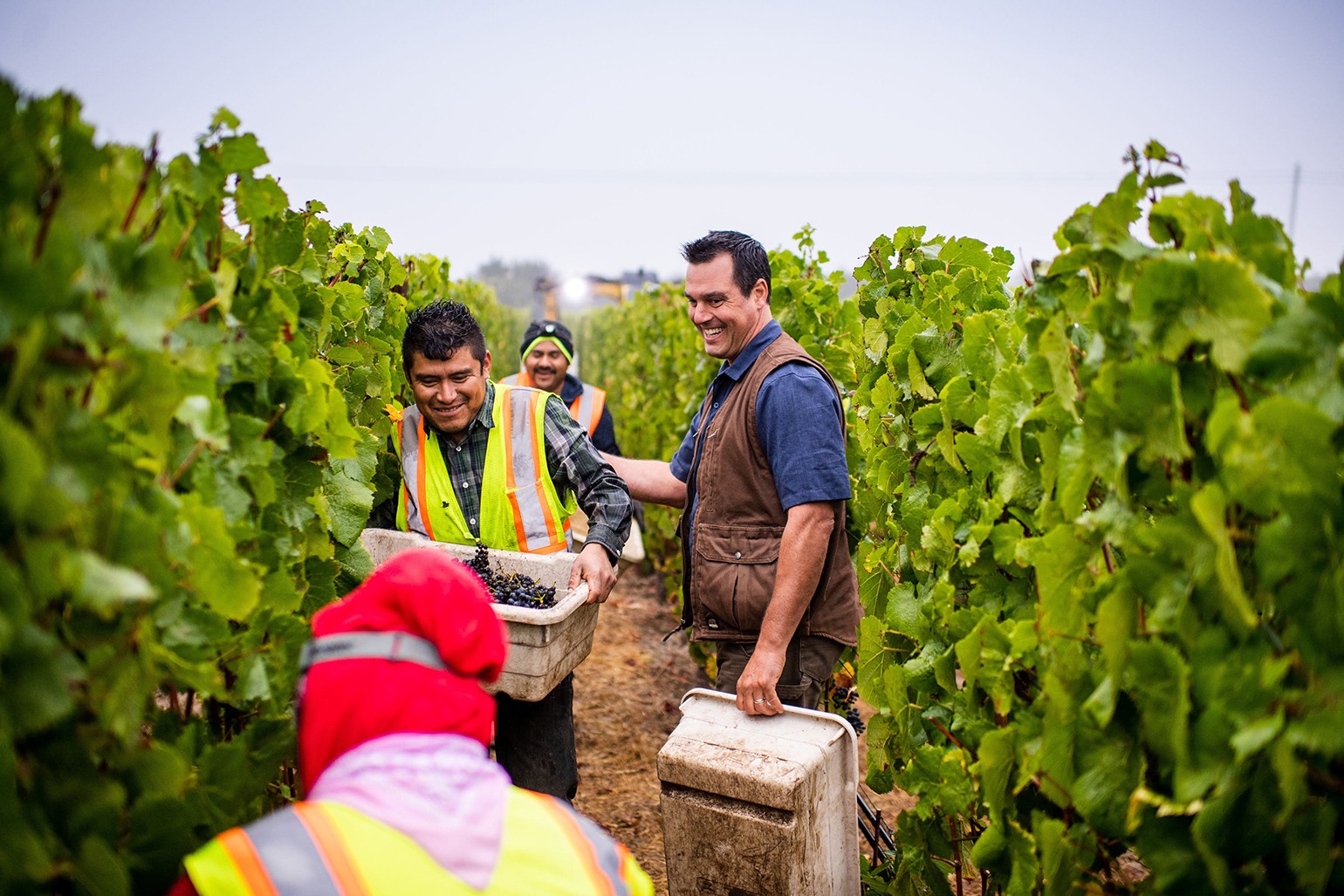
Sebastopol
Winemaker and vineyard manager Paul Sloan and his wife, Kathryn Sloan, of Sebastopol’s Small Vines first started farming vines in 1998. “We didn’t have the luxury then of farming the way we envisioned,” he says. With 3.5 acres in chardonnay and 15.5 acres in pinot noir, Sloan crafts Sonoma Coast AVA wines, including a méthode champenoise from both varietals. It took another 10 years before the Sloans could farm biodynamically — they had to learn an entirely new consciousness of how to farm. “How was farming before the chemical revolution?” Sloan asked himself. “That is what biodynamics was derived from, when chemicals did not exist — it’s like homeopathy in a vineyard, if you will,” he says. His regenerative farm requires him to think proactively of natural ways to solve problems before they occur.
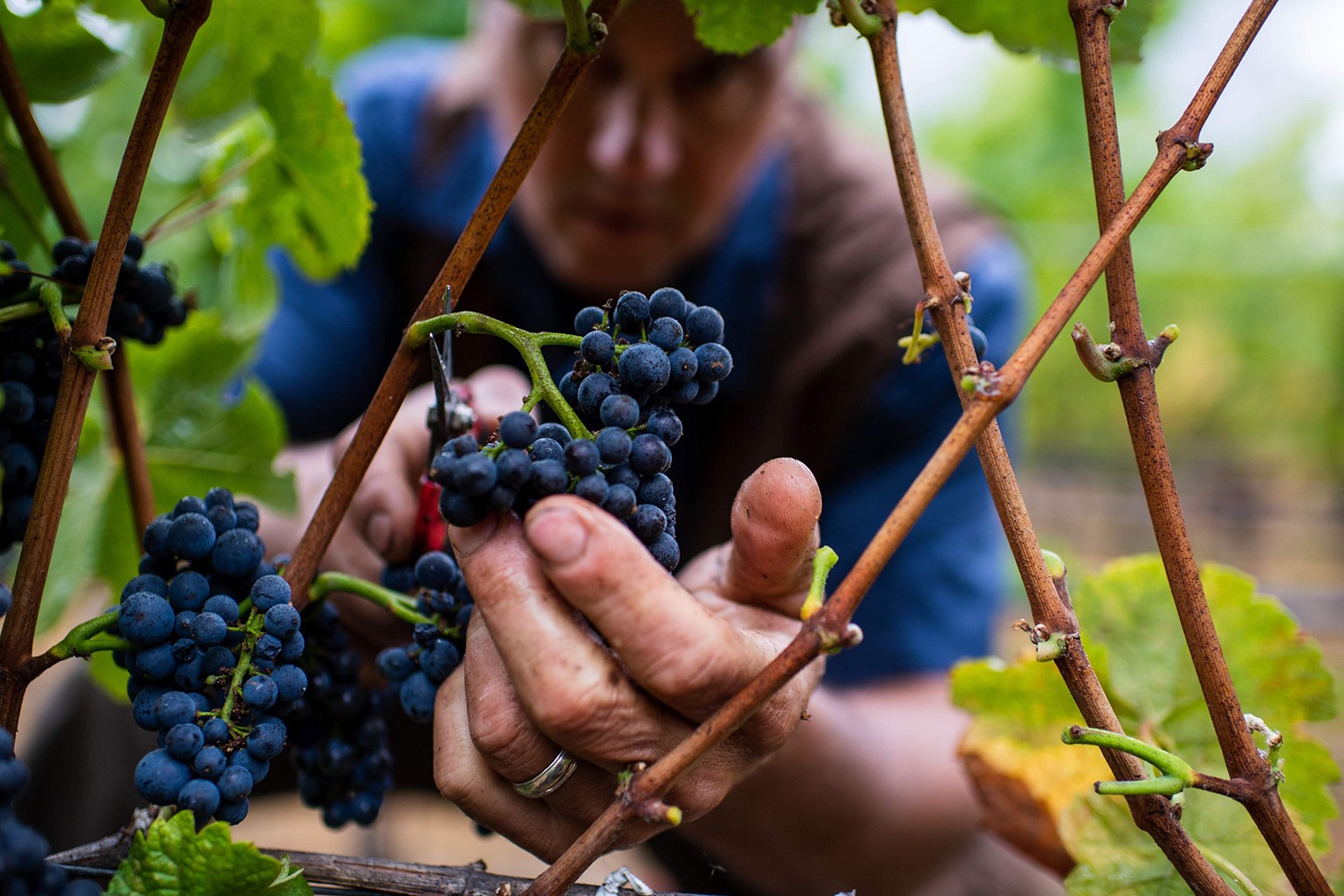
From planting denser vineyards with narrower lanes between rows (to retain the grapes’ natural acidity and stave off the need to add tartaric acid or boost a wine’s alcohol content) to utilizing a precision suckering technique called “green pruning,” (to amplify select fruiting canes and reduce plant stress later in the cycle), it’s a laborious and precise method of farming. The result is a beverage that is as healthful las possible. Taste Paul Sloan’s wines in his apple packing barn at the family’s historic 1890s-era Barlow homestead by appointment only or look for them at Madcap restaurant in San Anselmo and Vintage Wines in Mill Valley.
Eco Terreno Wines
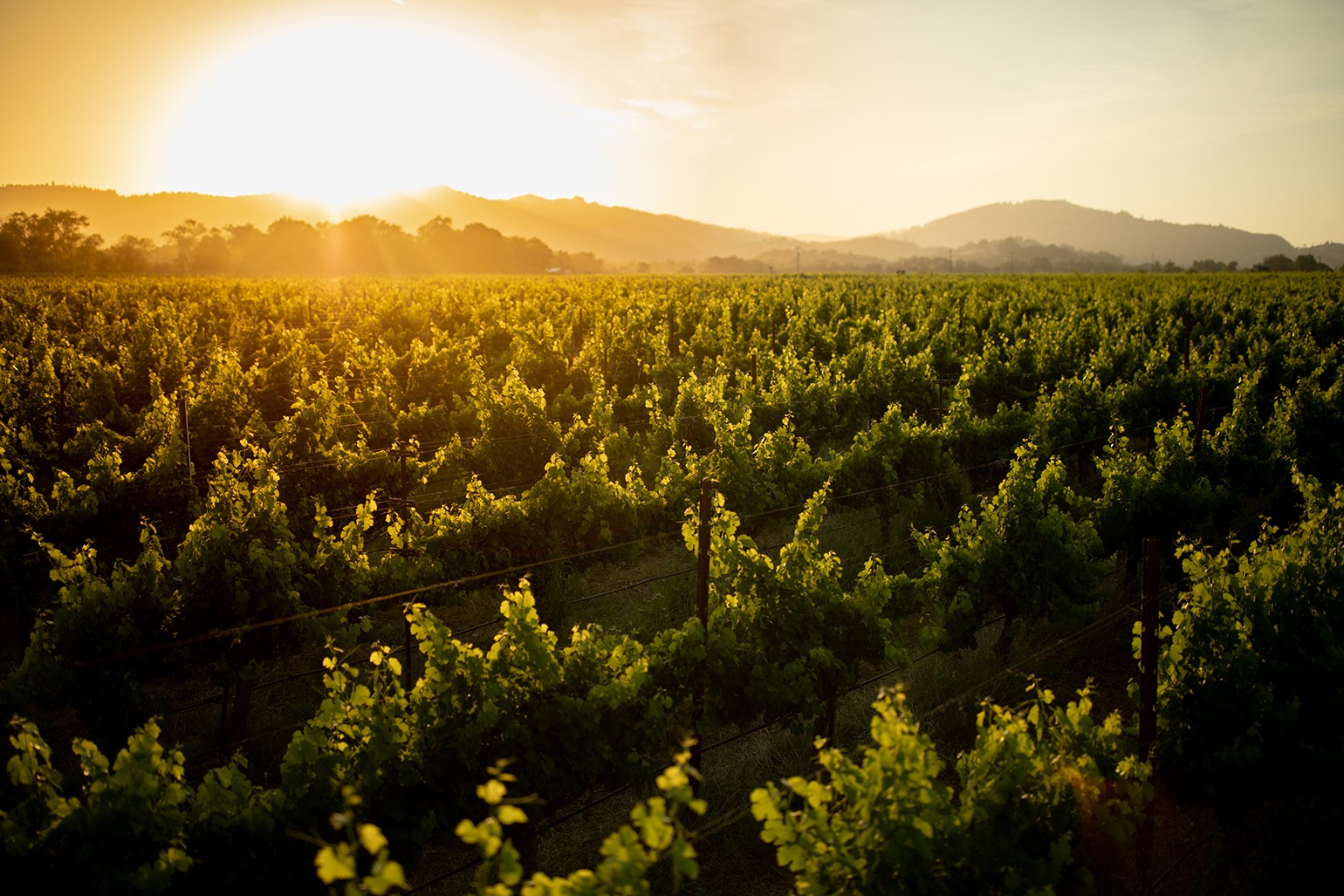
Cloverdale
Winemaker and proprietor Mark Lyon at Eco Terreno Wines became a trailblazer when he shared his LGBTQ+ status in a 2004 San Francisco Chronicle article, “Winemakers to Watch.” When he launched Eco Terreno after a career at Sebastiani, Lyon set out to farm in harmony with nature, growing high-quality fruit with regenerative ecological actions. “It’s no longer enough to farm sustainably,” Lyon says.

His 92-acre Cloverdale farm follows a set of core principles to farm for the future. Plant diversity keeps nutrients in balance and weeds in check. Animals freely roam amongst the vines, managing pests and adding manure to the soil. The farm compostsmore than 500 tons of cow manure, pomace and plant waste, converting inactive dirt to healthy soil. Biodynamic farming preparationsfoster the growth of beneficial bacteria, acting like supplements to enrich the soil and prevent diseases. Try Lyon’s wines at their tasting room in San Francisco’s North Beach neighborhood, scheduled to open this summer.
Campovida
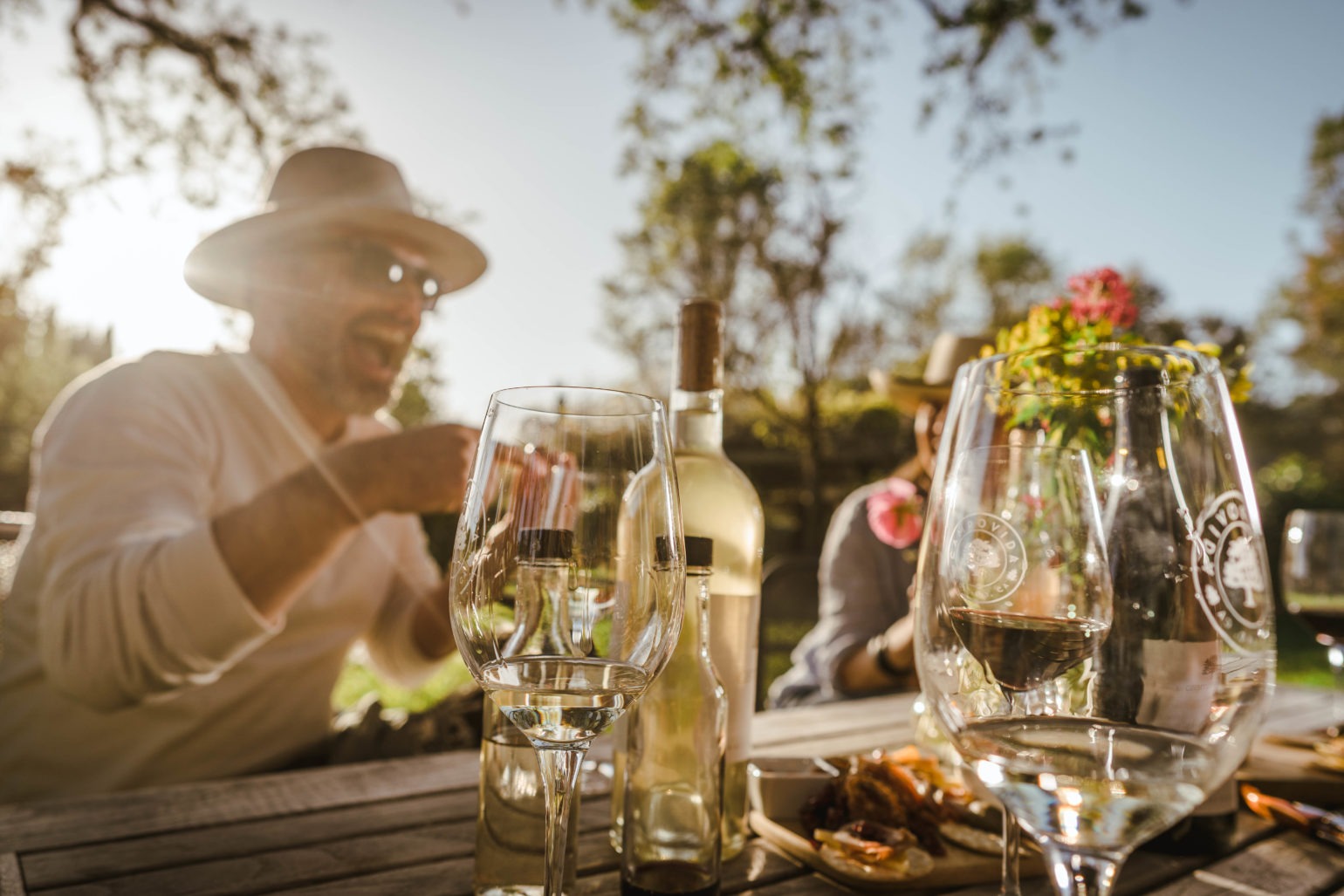
Hopland
“Field of life” is the literal translation of Hopland’s Campovida but it’s also the stylistic focus of winemaker Matt Hughes. Organic and biodynamic vineyards are pillars of his winemaking, allowing for the deepest connection between the vines and the earth. “We guide the winemaking process with a light touch to keep that voice of the vineyard from being muted,” Hughes says. He does not routinely add sulfur dioxide as a preservative to his wines, selecting gentler and more natural methods. Campovida wines — viognier, rosé and rosé de grenache — are available for tasting at their sister property, the bar at the Stock Farm.
Medlock Ames
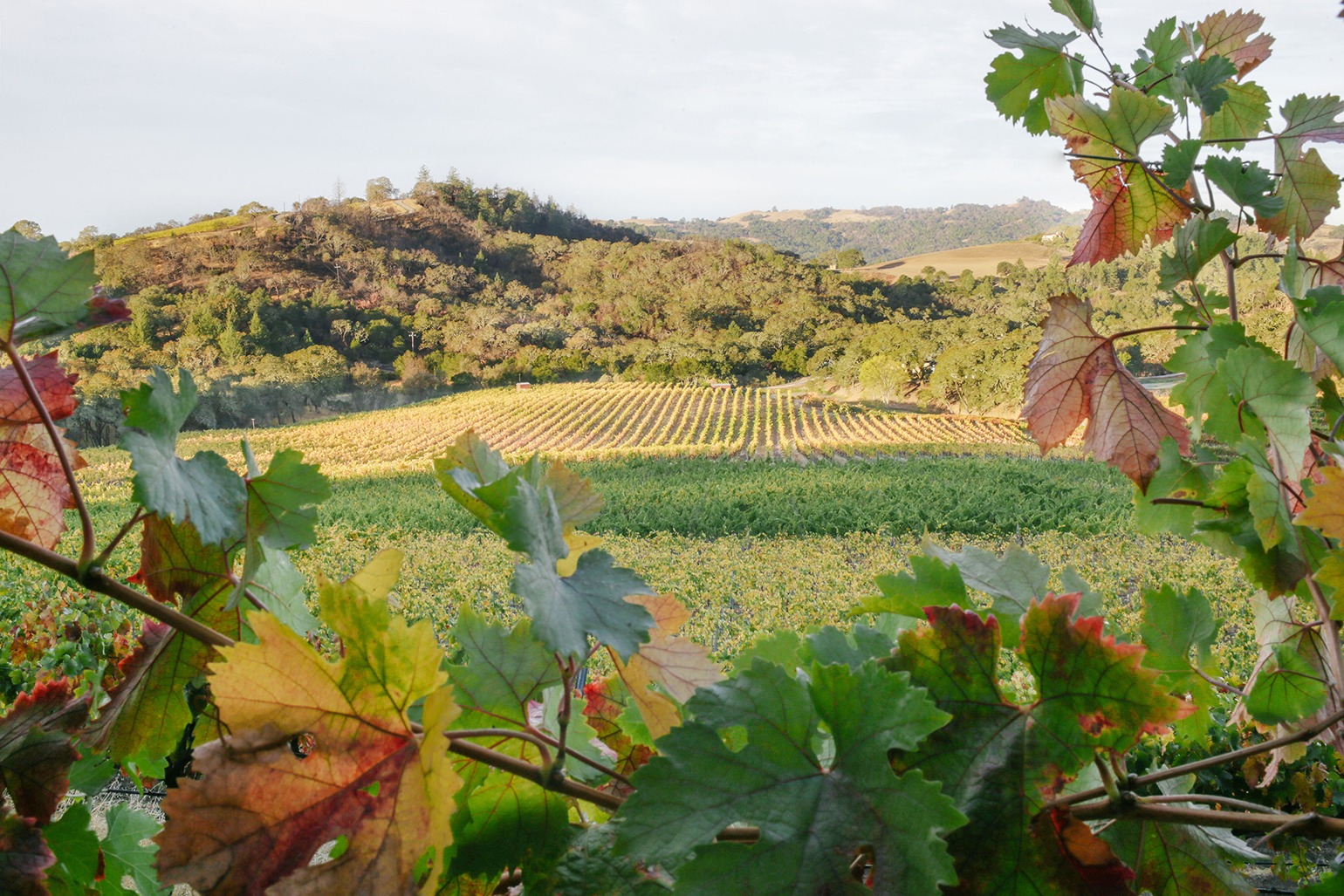
Alexander Valley
Cofounder Ames Morison has been sustainably farming his 50-acre vineyard, Medlock Ames in Sonoma’s Alexander Valley for 23 years. After 19 years as winemaker, Morison now focuses his energy on the winery’s strategic sustainability goals, transferring the head winemaker role to Abby Watt. Regenerative agriculture practices are built in, and the team recently launched a five-year plan to cement their sustainable legacy. The plan seeks to eliminate their carbon footprint, enhance biodiversity, reduce water dependency, create a fire-resilient ecosystem, nurture an inclusive work environment and deepen community engagement. The holistic emphasis means that most of the 340-acre property remains in its natural state.
More from Marin:
- Stewards of a Historical Gem: How the Sweetwater Music Hall Was Re-invented as a Nonprofit to Preserve a Legendary Venue
- Better Makers: Guide Dogs for the Blind’s Virtual Holiday Celebration Raises Thousands to Empower People, Dogs and Communities
- San Rafael’s Huckleberry Youth Programs Surpass Fundraising Goals With Roaring ‘20s Benefit

South America and Europe. She discovered her talent as a wordsmith in college and her love of all things epicurean in grad school. She has written for Condé Nast Contract Publishing, Sunset, and the Marin Independent Journal, among others. She volunteers with California State Parks and at her childrens’ schools, and supports the Marin Audubon Society, PEN America, and Planned Parenthood. When she is not drinking wine by a fire, she is known to spend time with her extended family.

